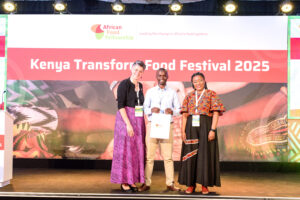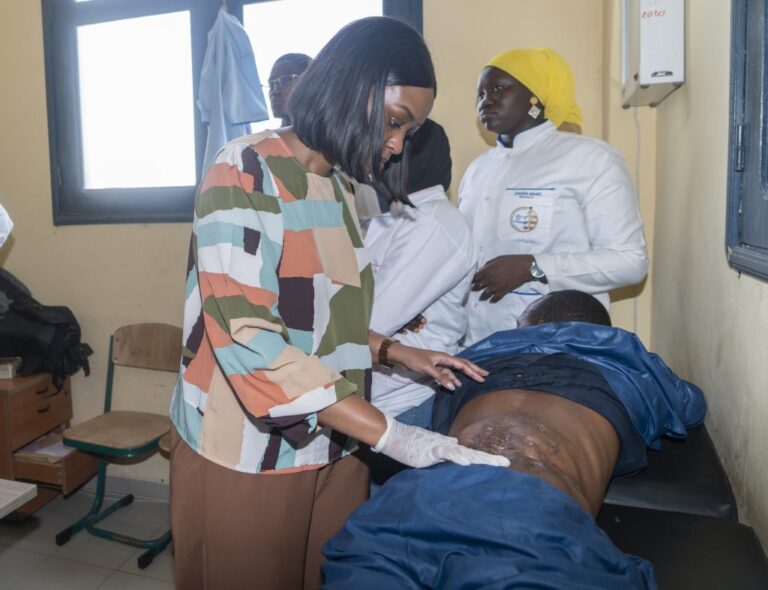At the heart of Nairobi’s informal settlements, many learners have been forced to study hungry due to lack of nutritious food.
This hinders their brain development and overall growth. At times, they even skip school because there isn’t enough food at home or at school.
It is usually difficult for any child to concentrate without a proper meal, and that’s why a group of African Food Fellowship (AFF) fellows, has joined together to change this narrative in areas like Mukuru kwa Njenga and kwa Reuben.
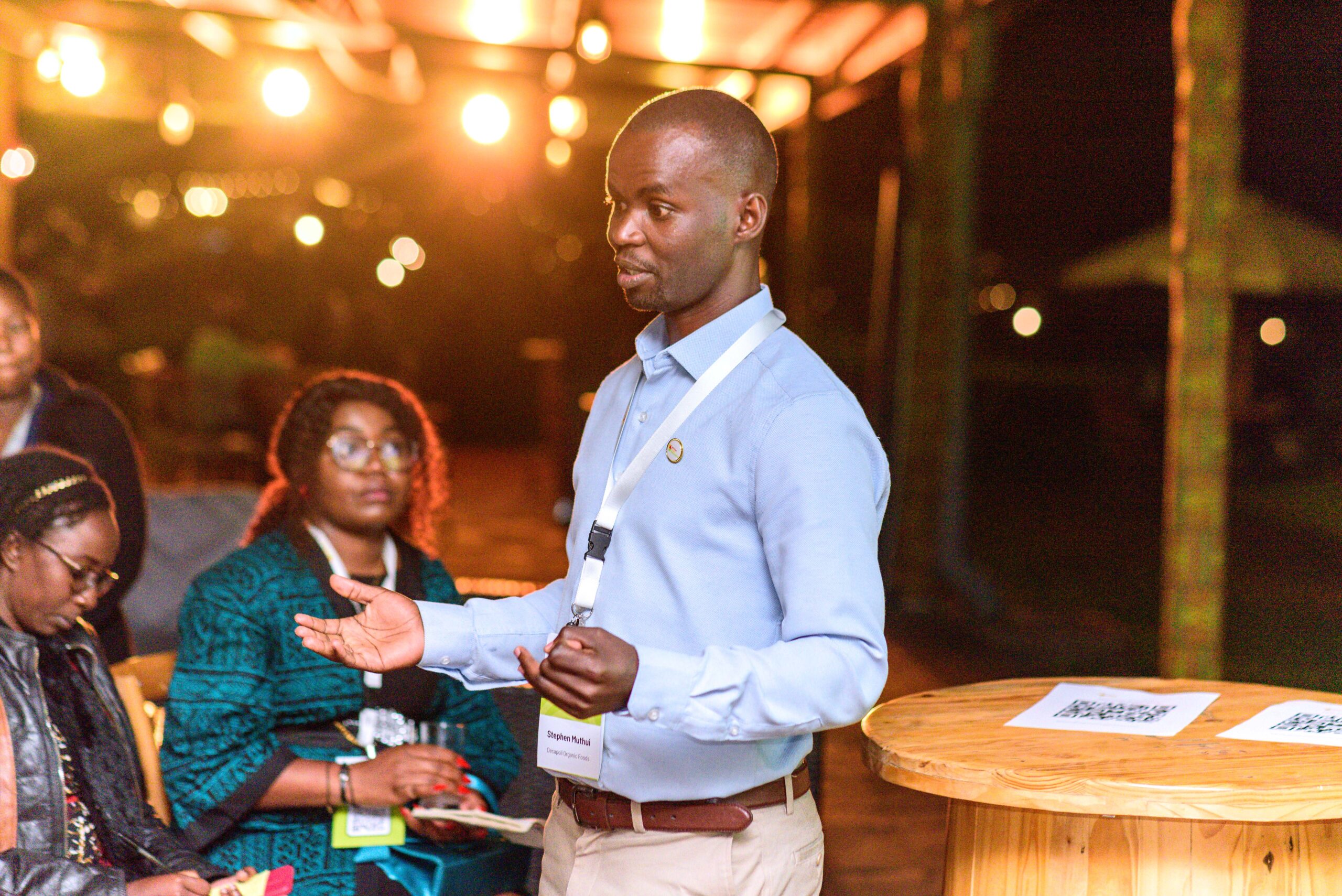
Photo: Solomon Masila.
Through their Food System Actions initiative, Feeding Futures, they aim to not only tackle food insecurity, but also to empower education by helping children stay focused in school, attend regularly, and perform better academically.
Food System Actions initiative
Stephen Muthui, an African Food Fellow and Organic Farmer, explains how he and his colleagues, Sylvia Kuria and Julia Kamau, are working to strengthen the relationship between human beings, the environment, and animals.
Together, they have been involved in advocacy and training sessions focusing on agroecology and organic farming. Stephen shares that their initiative “Feeding Futures” arose from noticeable gaps affecting marginalized groups living in urban slums.
“We practice sustainable agriculture called agroecology, trying to understand how human beings, the environment, and animals holistically benefit from each other. Feeding Futures was born out of the realization of existing gaps among what we call ‘forgotten children’ and groups of people living in slum areas. These are people who don’t have options when it comes to food choices,” explains Stephen.
He further points out that there are plenty of organic foods in rural areas, yet it is often hard to find them in urban settings. Many consumers tend to only buy the best-looking vegetables and fruits at the market, leaving the second-grade produce to go to waste.
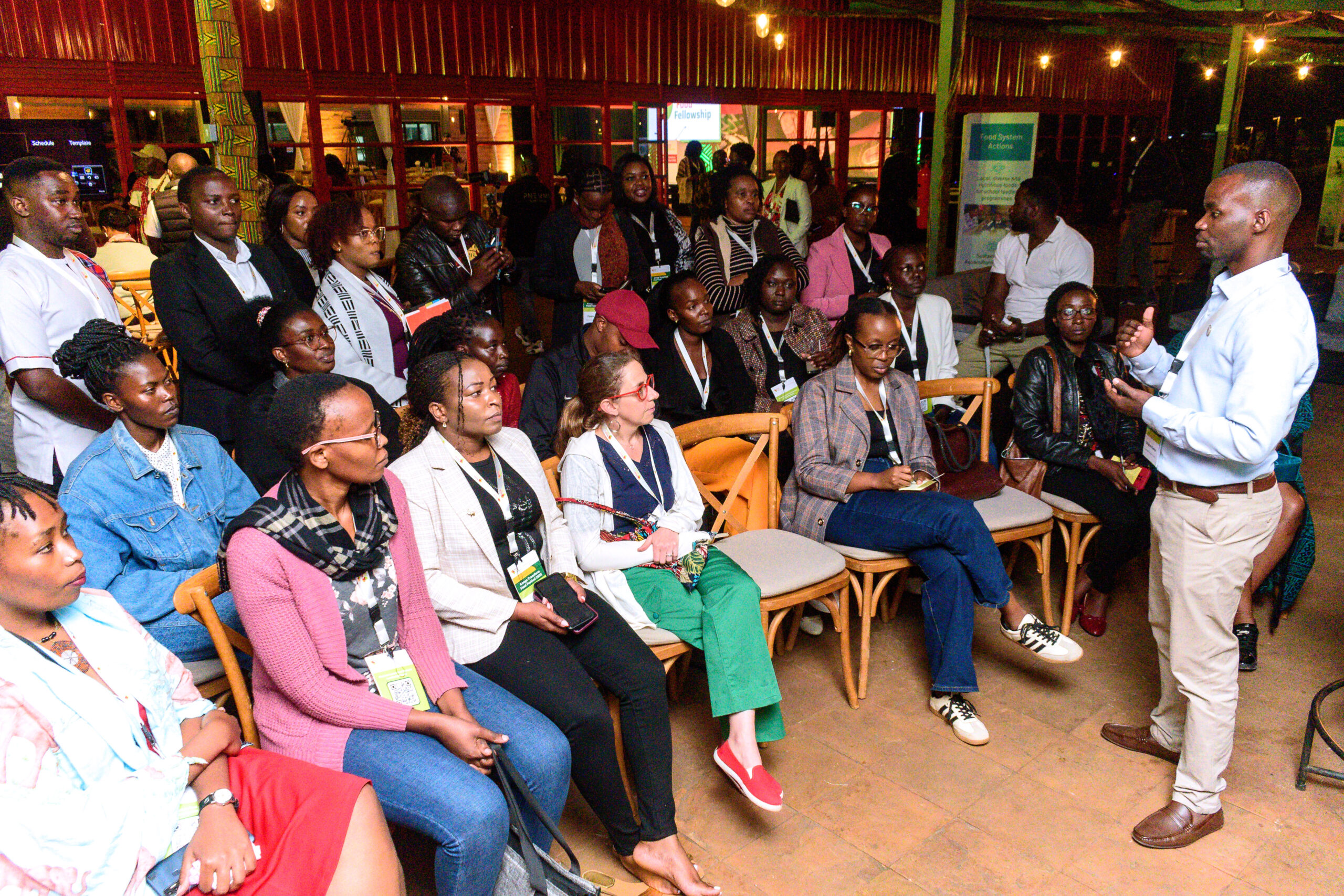
“When you go to the market, you want to buy a very nice-looking tomato or spinach. When you see a weak-looking spinach, you think it’s lower-quality food. We usually call them second-grade foods, and these often go to waste,” he adds.
To address this, Stephen and his colleagues decided to create an initiative that prevents the second-grade produce from going to waste, while ensuring that people living in the informal settlements have access to nutritious meals.
“Our food system is seriously disconnected, and that’s where we come in. We are offering solutions. We want to bridge this disconnect by bringing these foods to the rightful people who deserve them,” says Stephen.
Feeding Futures aims to bridge the gap by ensuring that children in the urban slums receive proper, and nutritious meals to support brain development and overall growth.
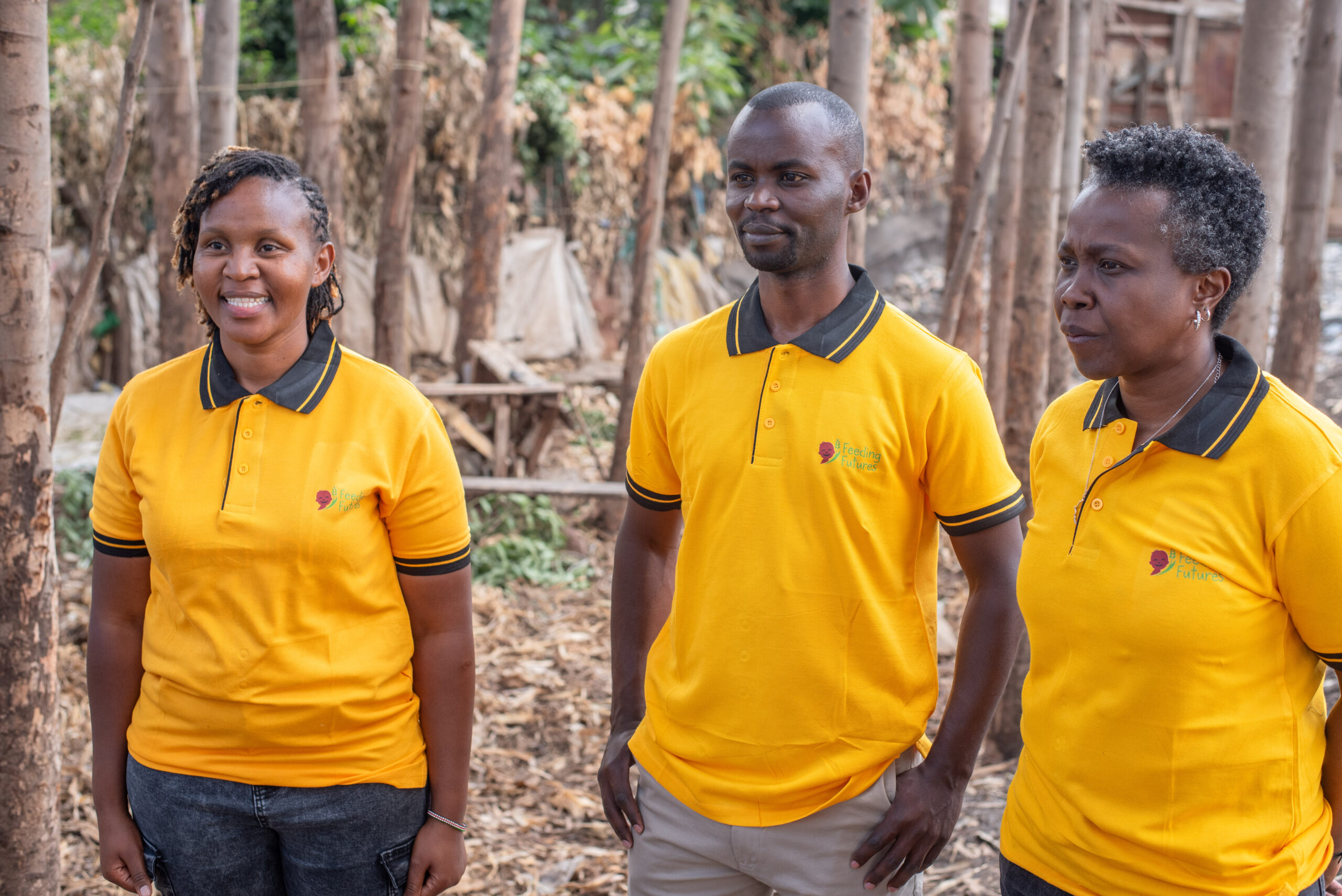
Photo: Solomon Masila.
Stephen highlights that their pilot project will be in Mukuru, with an alternative school. Through collaborative efforts with colleagues and stakeholders, they believe that their project will be a success.
“As a kid, if you’re optimally well nourished, you’re able to grow, and your brain develops as it should. Mukuru is our starting point, and we believe that it’s going to work with the stakeholders coming together. We’re currently working with an alternative school where these kids are already out of the normal systems operating in our country,” he notes.
The initiative will also expand to various informal settlements where learners often lack adequate food or study on empty stomachs. The extension will reach Kibera, Korogocho, and other slum areas in Nairobi.
“As African Food Fellowship leaders, we believe that leadership means going where nobody else wants to go and doing things that nobody else wants to do. We are going to extend one school at a time, one institution at a time, and ensure that the children in slum areas are given the same privileges and honor as the others,” he stresses.
Stephen acknowledges their collaboration with Mukuru Agri-business Association (MAA), in Mukuru kwa Njenga consisting of women traders who engage in organic produce trading and small-scale farming.
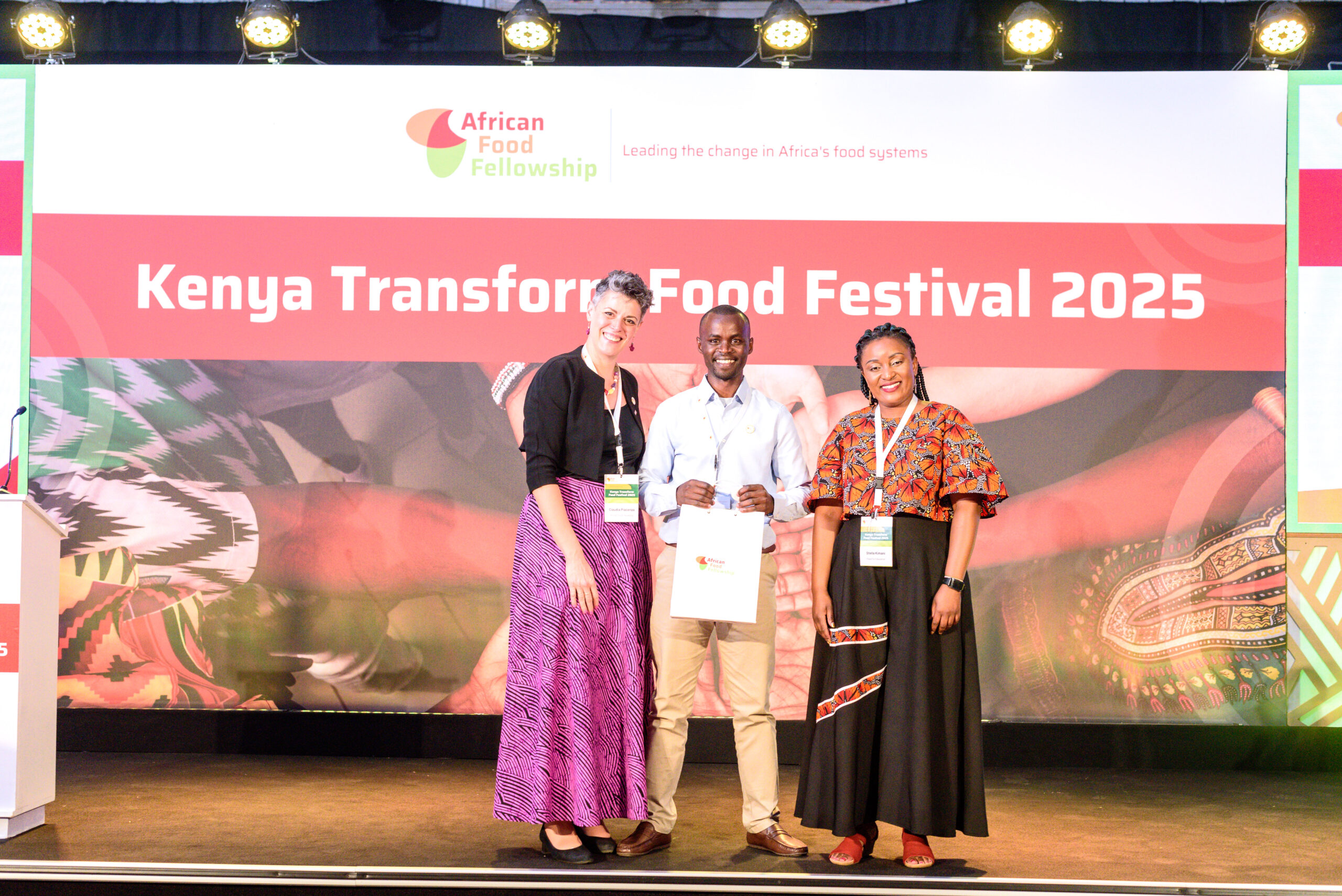
Photo credit: Solomon Masila.
“We are currently working with one school which we’ve already enrolled. We have been having conversations for the last year, so it’s not something that started yesterday. We are happy to also collaborate with MAA,” he notes.
He mentions that they are reintroducing lost indigenous food as a way of biodiversity conservation. They have also developed training schedules for farmers who have not yet adopted organic farming.
The initiative has reached approximately 400 children in the urban slums with plans to reach more learners in the coming years.
“We have around 400 children. We have already started establishing training schedules with the farmers, and we’ll begin providing meals next year at the open school,” Stephen shared.
Understanding Food System Actions (FSAs)
According to Ledama Masidza, the Connect and Food System Lead for the African Food Fellowship (AFF), Food System Actions (FSAs) projects go beyond just fixing visible challenges within the food system.
They tackle deep structures of the food systems that affect policy, power dynamics, incentives, relationships, and markets.
“FSAs look at how we address the conditions that produce these challenges, rather than just fixing the problems. This isn’t easy, especially in Kenya, a dynamic, complex country when it comes to food security, food policy, markets, actors, and the economy,” explained Ledama.
He highlighted the challenges they faced when preparing for the Kenya Transform Food Festival 2025, particularly in mobilising fellows to showcase meaningful projects and case studies.
Over time, they managed to organise, and several Food System Actions were showcased successfully during the festival.
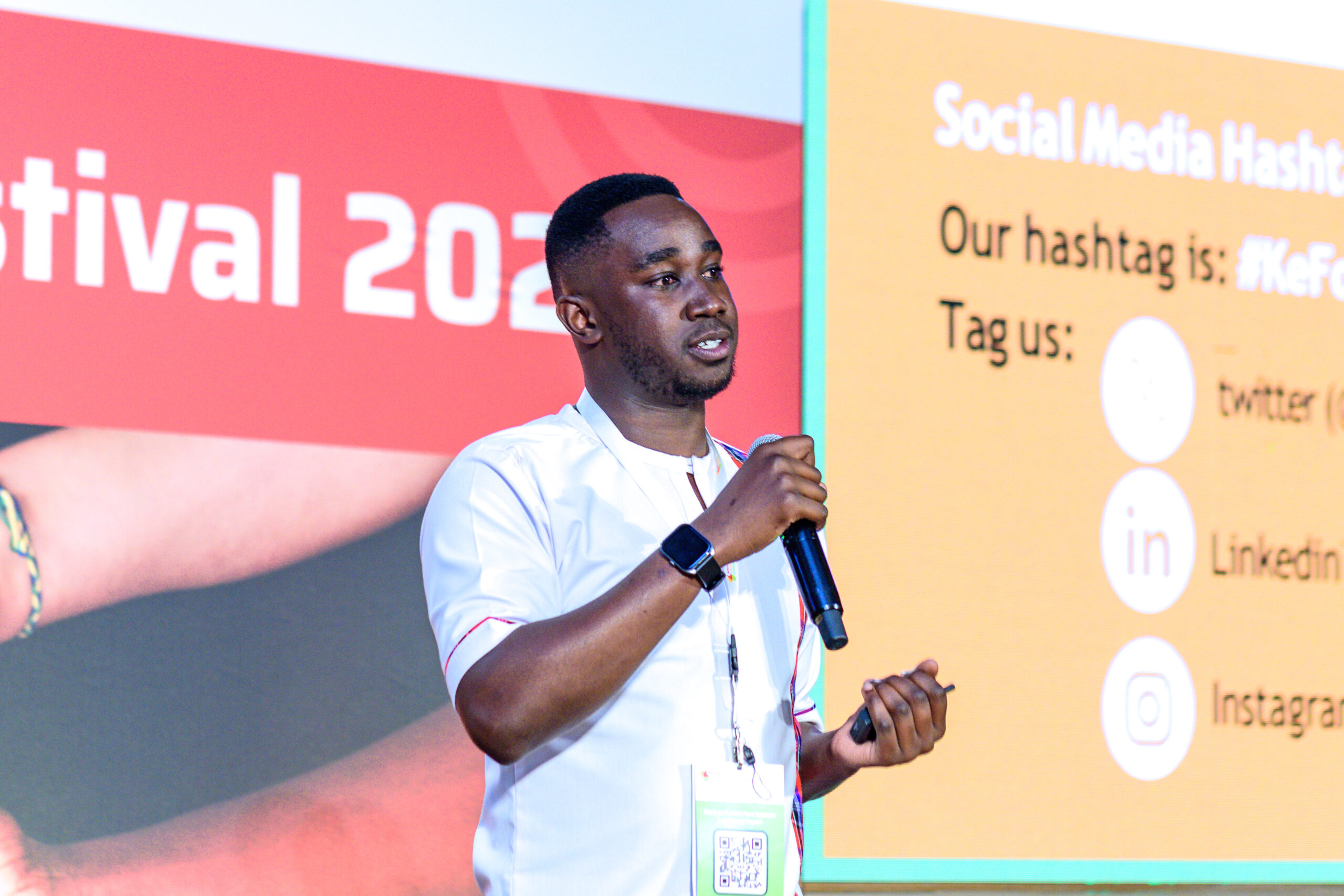
Ledama Masidza, the Connect and Food System Lead for the African Food Fellowship (AFF).
Photo: Solomon Masila.
“Over the course of the year, we’ve seen our fellows get into their rhythm. We worked with them to curate some of the Food System Actions showcased today, from building aquaculture learning hubs in Samburu and Kajiado, to teaching women and youth how to access the markets, information, and reimagining school feeding programs,” he recalled.
Ledama commended the Feeding Futures projects by Stephen Muthui, Sylvia Kuria, and Julia Kamau, noting that it has reminded society of its collective role in nourishing the next generation.
“They made us remember where we fit and our role in ensuring that our next generation has the energy and capacity to lead. I believe that’s why they also won the Food System Action Prize today,” said Ledama.
He further emphasized on the importance of data inclusion, explaining that youth and women are often excluded from key data, limiting their participation in decision making.
The Food System Actions presented at the festival highlighted those gaps and offered ways to bridge them, ensuring that no one is left behind.
“Not being included in data means that you’re not part of the decisions that are made. All of these actions collected over the year highlight what we’ve just experienced tonight,” he observed.
Ledama concluded that the festival’s impact will continue to grow and become bigger, better, more inclusive, and more transformation in the years to come.
In a keynote speech, Stella Kimani, Senior Policy Manager at Food 4 Education, noted that food systems are rooted in the belief that Africans are capable of finding solutions to challenges affecting them.
“Food systems transformation is not just theory but applied courage. It’s adaptive, collaborative, and grounded in the belief that Africans can design and scale solutions to Africa’s problems,” she said.
Stella, also an African Food Fellow, underscored the importance of leadership in food systems, emphasizing that collaboration and courage are crucial in bridging food system gaps in Kenya.
“We start at the intersection of possibility and responsibility. Your leadership matters. Our continent does not need heroes but architects of systems who build bridges between generations and ideas. Let’s keep experimenting, collaborating and leading with courage,” she added.
